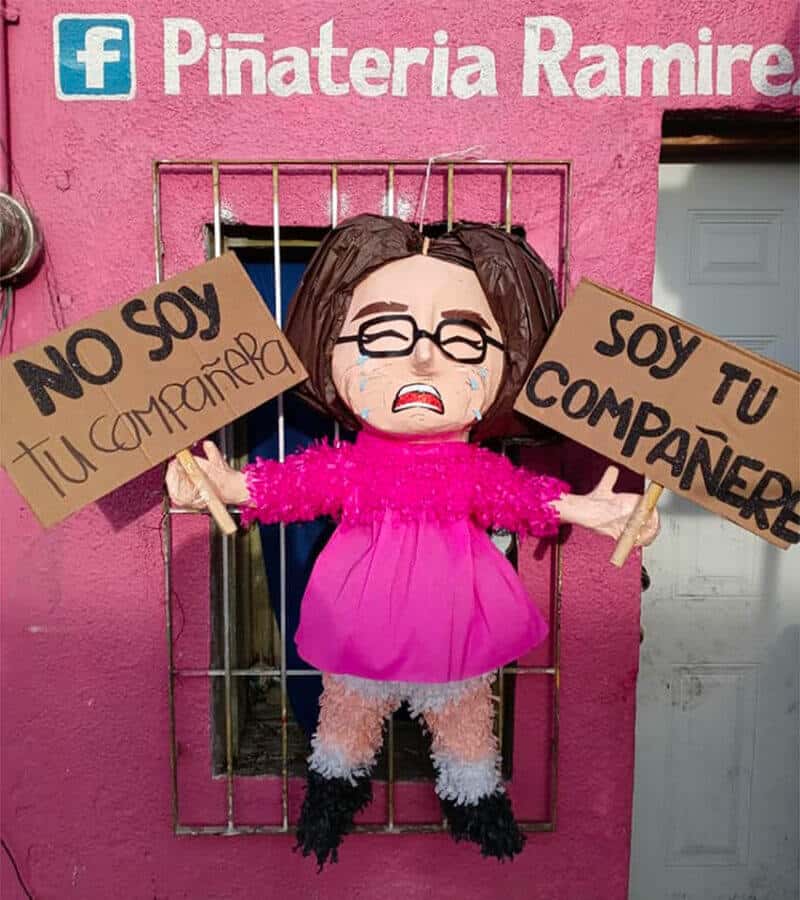During a recent university class held over Zoom, a young Mexican non-binary person took umbrage when one of her fellow students referred to her as compañera, the feminine word for classmate or colleague.
“I’m not your compañera, I’m your compañere,” sobbed 19-year-old Andra Escamilla, using a gender-neutral term, before leaving the virtual class despite her classmate’s prompt apology.
A video of the exchange turned up on social media and quickly went viral, prompting a renewed debate in Mexico about inclusive language.
(Latinx is one gender-neutral term that is now frequently used in English in place of Latino or Latina, while some Latin American feminists use the neologism cuerpa to refer to their bodies rather than the correct word cuerpo, which is a masculine noun in Spanish.)
One criticism that some people have of the Spanish language is that the masculine takes precedence over the feminine when one is referring to a mixed group of people, animals or things. For example, you can have a group of nine niñas, or girls, but add just one boy and all of a sudden you have a group of 10 niños.
According to Georgina Barraza Carbajal, a linguist with the Mexican Academy of Language, the dominance of the masculine plural “makes people invisible.”
In an interview with the newspaper El País, she said that women are the main victims of the grammatical rule but added that non-binary individuals are also affected by it.
In that context, non-binary and LGTBIQ+ advocacy groups, among others, have proposed replacing the masculine “o” commonly used in plural terms – think todos (all of us), compañeros (classmates) and ciudadanos (citizens) – with a gender-neutral “e” in spoken language and the symbol @ or the letter “x” in written language.
Thus todos becomes todes, compañeros can be written as compañer@s and ciudadanos can be rendered as ciudadanxs.
The @ symbol is already commonly used to create gender-neutral plural terms, especially in online communication, while the use of non-sexist neologisms is also becoming increasingly frequent in spoken language.
Verónica Lozada Martínez, a linguistics professor at the National Autonomous University, said it is unclear whether such variations will grow in popularity to a point that they become established and broadly accepted but noted that a lot of academics are opposed to their use because they believe they cause a “deformation” of the Spanish language.
The Real Academia Española (Royal Spanish Academy), the foremost authority on the language, has expressed its rejection of inclusive, or non-sexist, neologisms.

“The grammatical masculine [plural] functions in our language as an inclusive term. … It doesn’t have any discriminatory intention,” the academy has said.
Its director, Santiago Muñoz Machado, said in a 2020 interview that inclusive language terms strip Spanish of its economy and beauty.
“These kinds of variants damage it. [Spanish] is a beautiful and precise language. Why do you have to come and ruin it,” he said.
Prominent Mexican linguist Concepción Company has also expressed her opposition to new inclusive language words whose usage is becoming more and more common, especially among young people.
Another staunch opponent of such neologisms is a México state university professor who told his students during a virtual class that if anyone refers to him as compañere, he’ll ask them in no uncertain terms to leave the class.
“You have to understand that there are two genders: masculine and feminine,” the Autonomous University of México (UAEM) state professor said in a virtual class that was posted online.
“In the animal world there is a macho [male] and hembra [female]. There is no mache or hembre, no! Please save me the trouble of kicking you out,” he said.
The UAEM subsequently issued a statement distancing itself from the professor’s remarks, saying that values and principles of inclusion were a priority.
Also weighing in on the inclusive language debate in the wake of Escamilla’s plea to be referred to as a compañere was a piñata shop, which frequently finds inspiration for its creations in the news of the day.
Located in Reynosa, Tamaulipas, Piñateria Ramirez made an Andra Escamilla piñata that it announced on social media.
“We have a [new] piñata. Why? I’m not your compañera, I’m your COMPAÑERE. I’m not your piñata, I’m your PIÑATE. … Best wishes to my non-binary clients,” the business’s post said.
With reports from El País and El Universal
